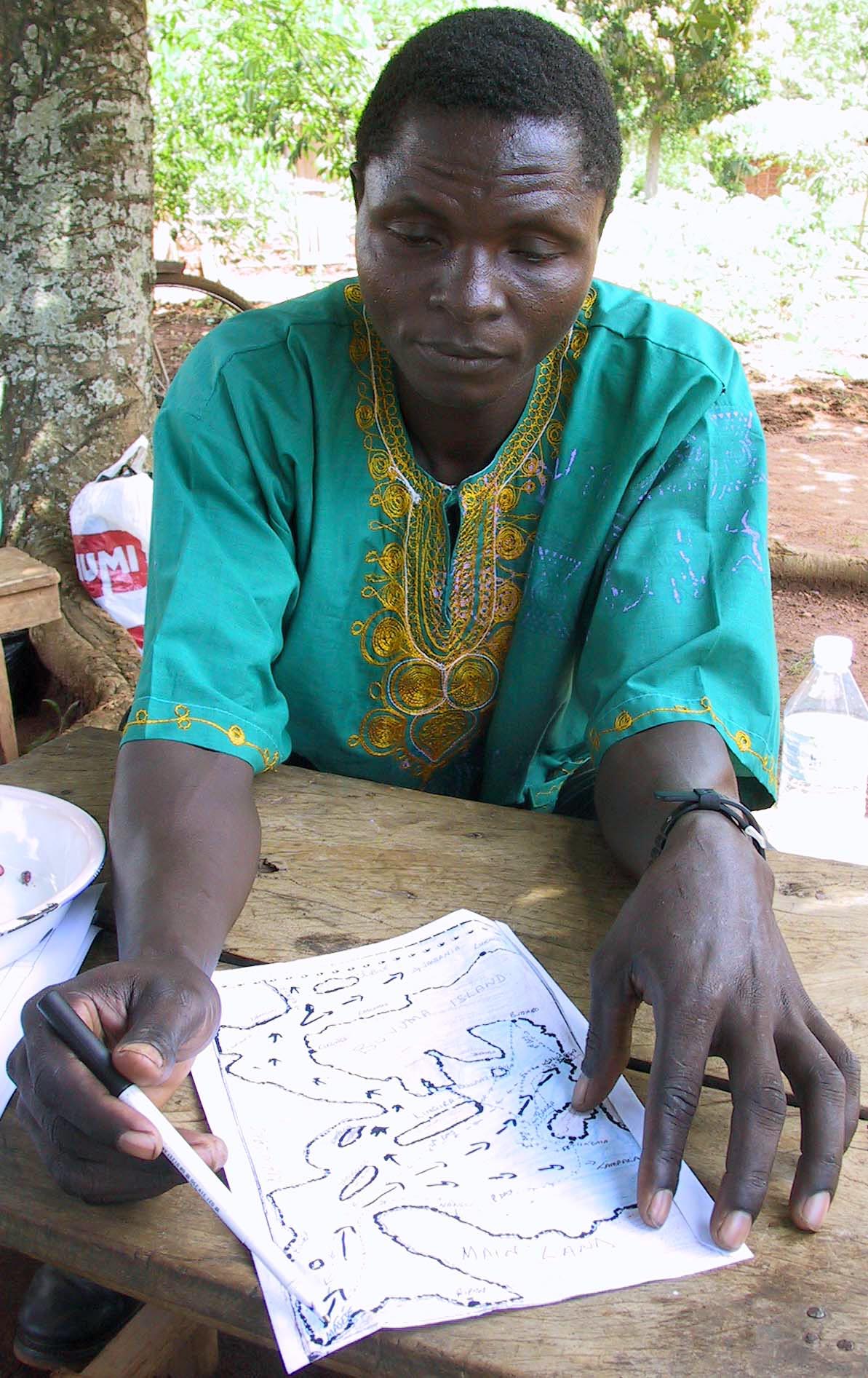
LAKE VICTORIA, Uganda (BP)–Shoeless men in ragged clothes watch as an unfamiliar boat approaches their landing site on the edge of Lake Victoria.
Visitors usually are not welcome here.
With a wave and a shout, the people in the boat identify themselves. Smiles of joy break out on the faces of the men. They hop into dugout canoes to meet the small motorboat carrying Southern Baptist International Mission Board (IMB) missionaries George and Geraldine Smith.
“Pastor, I have all of my verses here,” one man says excitedly as he points to his head.
This man is among more than 10,000 refugees living on the 50-plus islands of Lake Victoria, the second largest fresh water lake in the world. Some of them were banished to the islands as political refugees. Others are there because they committed crimes or carry a disease such as AIDS or tuberculosis. Many could leave, but have no place to go.
Fifty miles off the Ugandan coast rests the largest island, called Bavuma. Distance alone makes it difficult for communication or even visitors. Only three boats a week — overloaded with charcoal and bananas — leave the island for Jinja, the closest town. People who want to travel back and forth climb on top of the loads and help bail water out of the leaky boat for the entire five-hour ride.
When you add the tough attitude toward outsiders among these islanders, most people prefer to simply forget about the islands.
Not God, though.
He is at work changing the hearts and attitudes of people on the islands, the Smiths say.
“God is here and He is moving,” George Smith says. “The response of the people is great. They are eager to listen and learn.”
The Smiths and missionaries Willie and Beulah Scott are heading up the first concentrated focus on the islands. They started the ministry from a small Baptist church begun years ago on Bavuma Island by retired IMB missionary Paul Eaton. The church is the only evangelical congregation on the islands.
The mud-brick, tin-roofed church is now the base for all evangelism and outreach programs.
A Bible school attracts students from all over the island. Christians and non-Christians are invited to attend the school. A literacy program was started because many islanders cannot read or write, and a school for the primary-aged children on the island is going strong.
Ugandan evangelist Stephen Baidu travels to the islands once a week with Smith. Baidu says even those who do not read are learning the Bible verses and stories in the Bible school classes.
“One man does not read, but he memorized 20 verses from the Old and New Testament in one week,” Baidu says. “He was that eager to learn.”
With nothing to do on the island but fish and drink alcohol, the Bible school attracts a lot of attention. Plans are in the works to start sports leagues and teach some vocational skills, too.
But the heart of the dirty, remote island, which has no electricity or running water, lies in the Bible school classes. People paddle canoes from islands as far as 20 miles away just to attend the three-day sessions. Thirty students — some with Bibles and some without pen and paper — crowd into a six-foot by 10-foot room to learn more about Jesus. At night, they sleep outside or on the mud-packed floor.
The first order of business in each session is turning in homework and reciting memory verses. Once 20 verses are memorized and recited all at the same time, a student receives a Bible written in his own language. Many languages are represented on the island since most of the people are refugees.
Smith says this diversity makes the islands the perfect place to establish a witness and teach missions as island residents are able to leave and return to the mainland.
“We can win Uganda to the Lord by training these people,” he says. “The people here on the islands can be the missionaries. They can go back to their people on the mainland and preach the gospel in their native language to their families. These people will make the difference in breaking the vast spiritual darkness in Uganda.”
Smith says most Ugandans are scared of water and do not know how to swim, despite working in canoes as fishermen. Drowning is the main cause of death in this area. So for someone to brave the waters of Lake Victoria just to sit and visit with the people grants them an automatic hearing with island leadership.
“At first, we came over on the charcoal boats,” Smith says. “It would take us four hours to get here, and we would never know when the next boat would go back through. You can’t begin to imagine the lengths you have to go just to get to the people.
A small motorboat bought with money from the Lottie Moon Christmas Offering cuts transport time down to a 40-minute ride and opens up a way to get to islands where no one ever goes. The people on the islands are proud of the used boat.
“That boat will bring Jesus to all of the islands,” a man fishing on the shore says to another.
Baidu overhears the conversation and shakes his head in wonder. Just a year ago, no one spoke of Jesus — only of drinking and fighting.
“Our hearts are changing,” he says. “Jesus is here, and He is moving among us. What we need is prayer. More churches cannot be started here without prayer to back it up.
“But it’s going to happen. I know it.”
–30–
(BP) photos posted in the BP Photo Library at http://www.bpnews.net. Photo titles: AT WORK, ONE WAY, STUDYING THE WORD and MAPPED OUT.
— Search for prayer requests from Uganda: http://www.imb.org/CompassionNet/countries.asp
— There are lots of ways you can help http://www.imb.org/ime
— Music video: Don’t Say No Missionaries needed in Eastern Africa http://www.imb.org/FPNeeds/LocationSearch.asp
















